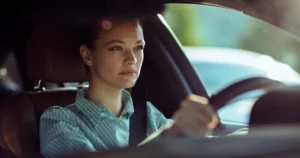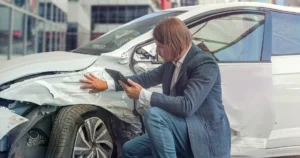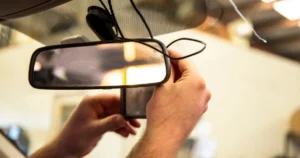
Car accidents can cause a range of physical injuries and emotional distress. Among the various symptoms that may arise, dizziness is one that should not be overlooked.
This blog addresses what victims should know about dizziness after a car crash and signs that dizziness could indicate more severe symptoms. Also, our experienced lawyers discuss treatment options and other steps to take to deal with the aftermath of a collision.
At Pfeifer, Morgan & Stesiak, understand the complexities of car accident claims and are here to provide clarity and support.
If you or a loved one is suffering from injuries after a car crash due to a negligent driver’s actions, call our South Bend car accident lawyers to discuss your legal options.
Schedule a free case review today: 574-444-0741. Zero upfront costs for victims.
What Should Victims Know About Dizziness After a Car Crash?
Dizziness is a sensation of lightheadedness, unsteadiness or vertigo that can occur after a car accident. It can be caused by several factors, including:
- Whiplash: Sudden head and neck movement can strain muscles and ligaments, leading to dizziness.
- Concussion: A blow to the head can cause a mild traumatic brain injury, resulting in dizziness and other symptoms.
- Inner ear damage: The impact of a collision can affect the inner ear, which plays a critical role in balance and equilibrium.
- Medication side effects: Pain medication prescribed after an accident may have dizziness as a side effect.
- Psychological factors: Stress and anxiety after an accident may cause hyperventilation, causing dizziness.
- Orthostatic hypotension: Your blood pressure can fluctuate after a car crash. If your pressure drops, you could feel dizzy, especially when standing up.
What Are Signs That Dizziness Could Mean a Severe Injury?
Dizziness can be a temporary symptom in some cases, but it can also indicate more severe underlying issues. It is vital to be aware of the following signs that may warrant immediate medical attention:
- Persistent or Worsening Dizziness: If dizziness does not improve or worsens over time, it could indicate a more serious condition.
- Severe Headache: A severe or sudden headache accompanying dizziness may indicate a concussion or other brain injury.
- Vision Problems: Blurred vision, double vision or difficulty focusing may indicate a traumatic brain injury.
- Hearing Loss or Ringing in the Ears: These symptoms and dizziness could suggest inner ear damage or a concussion.
- Nausea or Vomiting: Persistent nausea or vomiting and dizziness could indicate a concussion or other serious condition.
- Loss of Consciousness: Whether you are dizzy or not, losing consciousness should never be taken lightly.
- Neurological symptoms: Numbness, weakness, confusion or difficulty walking should not be ignored.
Treatment Options for Dizziness
Treatment for dizziness after a car accident will depend on the underlying cause. Some common treatment options include:
Rest and Recovery
For mild cases, rest and avoiding strenuous activities can help alleviate dizziness.
Medication
Doctors may prescribe medication to manage symptoms, such as pain relievers for headaches or anti-nausea medication. It is best to consult your doctor regarding any questions you may have about taking medication.
Physical Therapy
For dizziness caused by whiplash or inner ear issues, physical therapy can help improve balance and reduce symptoms. Gaze stabilization exercises target eye movements and enhance stability during head movements.
Vestibular Rehabilitation Therapy (VRT)
This specialized therapy focuses on improving balance and reducing dizziness through exercises. Some customized exercises focus on adaptation and habituation.
Hydration
Ensuring adequate hydration can help prevent dizziness caused by dehydration or medication side effects.
What To Do for Dizziness After a Car Accident?
If you experience dizziness after a car accident, it is important to take the following steps:
Seek Medical Attention
Consult a healthcare professional to evaluate your symptoms and determine the underlying cause of dizziness.
Follow Medical Advice
Adhere to the treatment plan prescribed by your doctor, including taking medications as directed and attending follow-up appointments.
Document Your Symptoms
Keep a detailed record of your symptoms, including when they occur, their severity and any activities that seem to trigger or worsen them. This documentation can be valuable for your medical providers and legal team.
Avoid Driving
Do not drive or operate heavy machinery until you have been cleared by a medical professional, as dizziness can impair your ability to perform these tasks safely.
Contact an Experienced Attorney
It is important to seek legal advice from a lawyer after a car accident caused by another party’s negligence. An experienced attorney can help you understand your rights and pursue compensation for your injuries.
Call Our Firm to Discuss Details About Your Potential Case
At Pfeifer, Morgan & Stesiak, we provide compassionate legal representation for South Bend car accident victims. We understand the physical, emotional and financial toll an accident can take on your life, and we are here to help you navigate the legal process.
If you or a loved one are experiencing dizziness following an accident, do not hesitate to seek medical attention and legal advice.
Call us to set up a free, no-obligation legal consultation: 574-444-0741.












